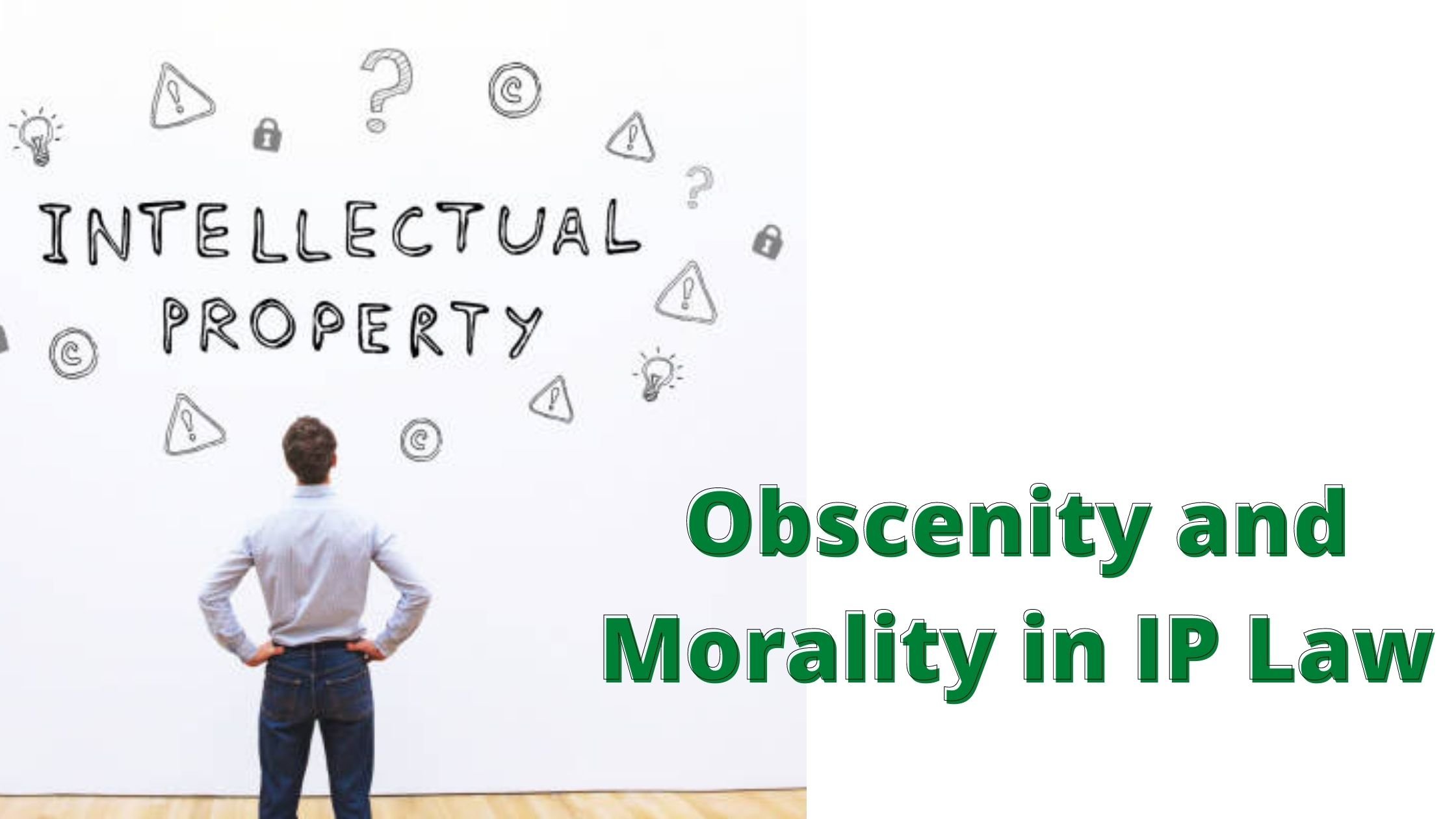Obscenity and Morality in IP Law
Obscenity is basically an offensive word, expression, or behavior, and something such as word, act, or expression that is indecent. Obscenity and Morality plays a vital role in IP Law. In Indian jurisdiction, obscenity is treated as a serious offense and its provisions are listed under Section 292 of the Indian Penal Code and under Section 294 of the Indian penal Code, which punishes obscene acts or words in a public place. This should be always considered in crime when obscenity cause "annoyance to others". The Law of obscenity has involved the advent of the internet and the wide use of social media. Obscenity includes all category of pornography that violates contemporary community norms.

Introduction
Obscenity is basically an offensive word, expression, or behaviour, and something such as word, act, or expression that is indecent. Obscenity and Morality plays a vital role in IP Law. Nowadays, obscenity is at such level the government need to stop as well as block that website and apps. In Indian jurisdiction, obscenity is treated as a serious offence and its provisions are listed under Section 292 of the Indian Penal Code and under Section 294 of the Indian penal Code, punishes obscene acts or words in a public place. This should be always considered in crime when obscenity cause "annoyance to others". The Law of obscenity has involved the advent of the internet and the wide use of social media. Obscenity includes all category of pornography that violates contemporary community norms.
The concept of obscenity may differ from one country to another just because of the difference in the culture of the country. Now under the Indian penal Code Section, 293 bans the selling of obscene objects to young persons and prescribes punishment for the same. Obscenity in electronic form is also punishable under Section 67 of Information Technology Act which only covers all kind of obscenity in electronic forms but when the case is filed both in IT act as well as in IPC then it can be considered together for a trial. As it is depicted in the case-law of Avnish Bajaj vs State of Delhi in which final decision was of a single judge of Delhi High court which was declared on 29th May 2008 and is considered to the first decision relating to the penal provision of the Information Technology Act instated to be the only authority on the point of of the criminal liability of online service provider
The important role of morality in IP law is that it helps in limiting monopoly in the protected product. As in general term, IP or intellectual property is a product of the human intellect that the law protects from unauthorised used of others. Relation of the morality of IP law can bring disturbance to individual conscience and social sanction and even it can bring loss of freedom as well as possessions. In IP law under Section 9(2)(c) of the Indian Trademark Act prohibits the registration of a trademark which consists of "scandalous or obscenity matter". Sometimes Indian law on obscenity is often misused in the pursuit of moral interest.
Various recent amendments such as that of Section 69 A Information Technology 2000, which came on 27 October 2009, Have raised the bar for the government to block all kind of obscenity from the websites and to protect individual dignity.
A patent is a form of intellectual property that give its owner legal rights to exclude other for making, using or selling an invention for a limited period of years in exchanging for publishing an enabling public disclosure of the invention. As under IP law, patent law in India is based on patent Act 1970 in which there is a provision that laid down under Section 3 (b) that invention which is contrary to public orders of the morality of which can cause serious prejudice to human or harm are ecosystem as well as an environment that invention cannot be granted protection.
Under the Copyright Act of 1957, the law related to copyrightable work is specified. Copyright is basically all kinds of, dramatic, artistic, cinematographic, music, and sound recordings. Due fast-changing world and dynamic change in technology vast development take place within a few years in the field of art literature media and entertainment. Thus, any copyrighted work should not cause any disruption in public or don't cause any public nuisance.
This test of obscenity was laid down in the Hicklin case in 1869, but not used in England since the enactment of the Obscene Publications Act 1959. In the case of Ranjit D Udeashi vs the state of Maharashtra, the Indian supreme court felt for the first to effectively use Hiclink's test and to the extent of obscenity and to emphasize the potential of the impugned object and to stop the corrupt immoral practice. The Supreme Court in the case said that where art and obscenity are mixed the artistic, literary or social merit of the work in question outweighs its obscene content. Courts should be vigilant while upholding ideas such as “decency” and “morality”. Something that is different may cause discomfort and unpleasantness, but that in itself cannot be a ground to curb its expression, stop people speaking of it, decide it is obscene and ban it
India is a country with a diverse population and diverse art and culture exist here on land. So it's high time for citizens of India to be a moral citizen with whole morality and to take a step against obscenity whether it's in a public place or through social media cause laws are equally applicable to all the citizens present with territories and it's the duty of each one of us to follow it with dignity and with drastically changing in technology we should embrace different thoughts and idea and that ultimately takes India to progressive level.
By-
Anshika Pandey












